Ever since the military first seized power in a coup in March 1962, Myanmar has been plagued by a vicious cycle of popular protests and violent repression—and, every time the people have risen up against the dictatorship, the men in green have managed to cling on to power. The question in 2023 is whether the ruling generals will succeed this time as well. What speaks for it is the remarkable unity that the military has always managed to maintain. There have been purges among the leaders of the armed forces and signs of dissent within the ranks, but, in the end, everyone in the military down to the private soldier has carried out the orders they have been given, no matter how brutal and inhumane.
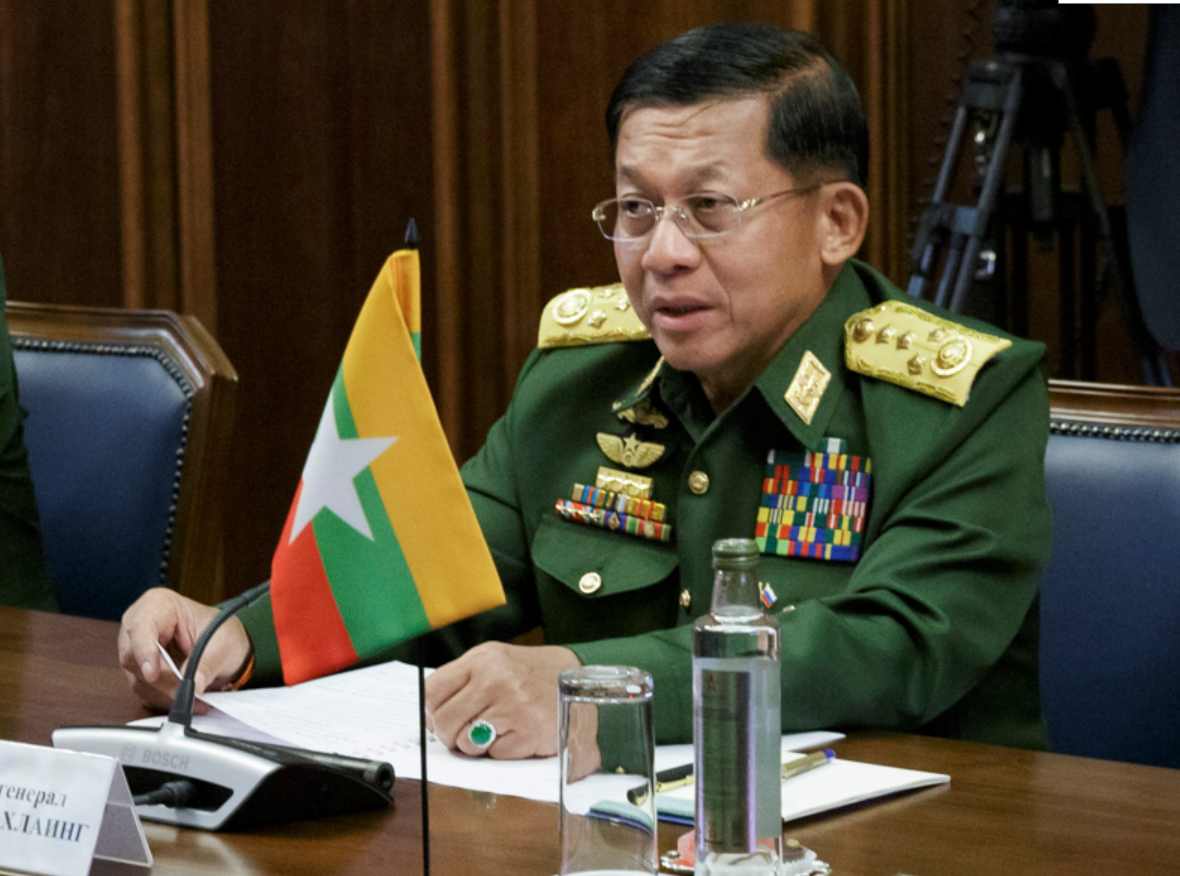
The argument that it might be different this time is based on the sheer incompetence of coup leader Senior General Min Aung Hlaing and those around him. Two years after they sent their tanks and troops into Yangon, Naypyitaw, Mandalay and other major cities and towns, they have yet to establish a functioning administration to replace the one they ousted. Ambushes of army convoys, bombings of public buildings, and assassinations of suspected military informants have become daily occurrences not only in the traditonally strife-torn frontier areas, but also, for the first time since the 1970s, even in the Myanmar heartland involving the majority Burmese population.
The situation has been exacerbated by a collapsing economy marked by a deteriorating exchange rate for the kyat, shortages of goods, rising prices of daily commodities—and the flight of capital to other countries. Owners of small and medium-sized businesses are transferring their assets to Thailand while the country’s immensely wealthy cronies are placing their money in financial institutions in Singapore and Dubai. No one wants to take the risk of having to depend on the erratic economic policies of an inept military regime, and whatever new, poorly thought out rules the generals may force upon the country’s own banks, which are untrustworthy even at the best of times. Compared to previous crises, it is clearly different this time. The situation has never been as bad as now, and, therefore, the final outcome of the power games that are being played out inside Myanmar is far more difficult to predict.
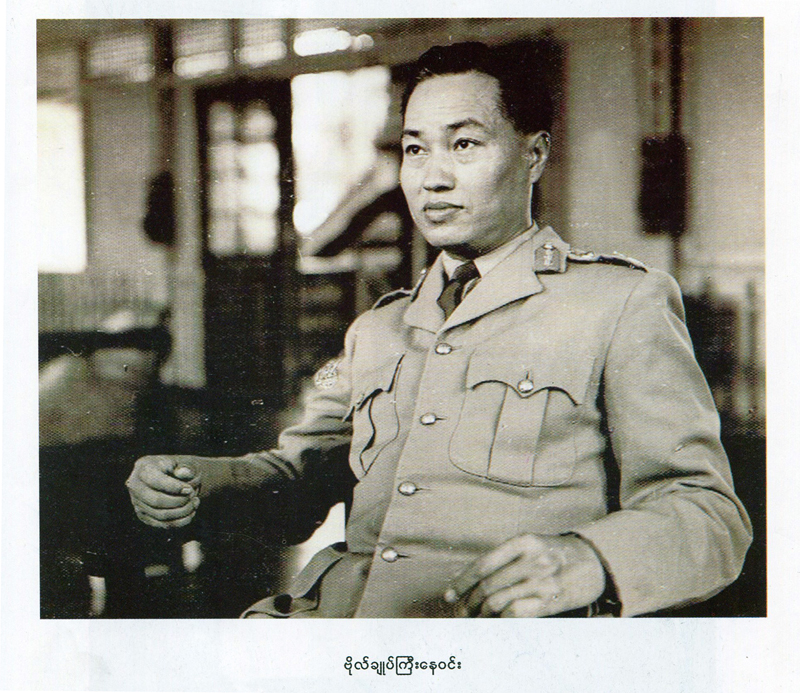
In March 1962, a 17-member junta called the Revolutionary Council (RC) led by General Ne Win seized power, but it was not until July that massive protests against the coup took place. At first, many people believed that it would be no different from 1958, when the military intervened and formed a caretaker government pending new elections. But as it became evident that this time the military was there to stay, thousands of Rangoon University students demonstrated—and were shot at by the military. Officially, 15 students were killed while eyewitnesses and independent observers put the total number of deaths at several hundred. And, in the early hours of July 8, Rangoon residents were awakened by an explosion that reverberated through the city. The military had dynamited the historic Students’ Union building, where the nationalists had gathered during the anti-colonial struggle in the 1930s, reducing it to rubble.
Disagreements over Ne Win’s new, disastrous socialist policies, which had turned the country into an economic wreck, and the role the military should play in politics, led a year after the coup to the resignation from the junta of Brigadier General Aung Gyi and the dismissal of Colonel Kyi Maung, who both became prominent actors in the 1988 pro-democracy movement. Two other junta members, Colonel Chit Myaing and Colonel Khin Nyo, were dismissed in 1964 and 1965. Many student activists took to the jungles and the mountains to join the insurgent Communist Party of Burma or, if they came from the country’s many non-Burmese nationalities, their respective ethnic rebel army. But Ne Win managed to consolidate his grip on power, and in 1974 an ostensibly civilian government led by the Burma Socialist Program Party (BSPP) and dominated by former military officers was formed after holding a fraudulent referendum on a new constitution.
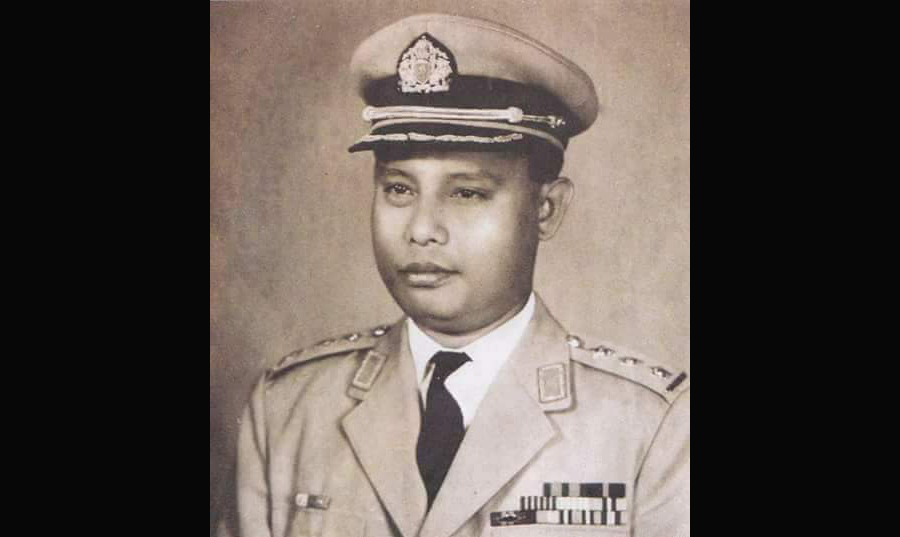
Not even renewed student protests followed by labor strikes in the mid-1970s—and more massacres of civilians—had any impact on how Myanmar was being run: it remained a dictatorship with Ne Win at the helm. The regime’s brutality, however, led to an abortive coup attempt initiated by Ohn Kyaw Myint, a young captain who had managed to gather some dissenting officers around him. But plans of the plot were leaked to the military authorities, and Ohn Kyaw Myint was arrested and executed in July 1977. What became known as “the Ohn Kyaw Myint affair” led to a massive purge within the military. Real and imagined accomplices were arrested, and among those sentenced to prison was General Tin Oo, a popular former army chief and defense minister. He got seven years of hard labor, accused of having had prior knowledge of the coup attempt. That was never proven, and the charge was no doubt politically motivated; protesters had shouted “Long live General Tin Oo!” when they demonstrated against Ne Win’s iron-fisted rule. Hundreds of mostly young people were killed when the soldiers opened fire on them, and, apart from Tin Oo, several other high-ranking officers were arrested and imprisoned. Tin Oo was released during a 1980 general amnesty and became a leader of the 1988 uprising and later chairperson of the National League for Democracy (NLD).
A far-reaching purge also occurred in 1983 when another officer, also called Tin Oo but no relation to the former army chief, was arrested. This Tin Oo, who had been trained by the US Central Intelligence Agency (CIA) on the US-held island of Saipan in the Pacific Ocean, began his career as a powerful military intelligence chief and was once considered Ne Win’s heir apparent. Several other former intelligence officers, among them Colonel Bo Ni, who had been trained on Saipan as the same time as Tin Oo, were also purged. Ne Win is said to have believed that “MI Tin Oo”, as he was called, and his henchmen were building up a state within a state, and as such could pose a threat to the supreme leadership. MI Tin Oo was transferred from Insein Jail to Ye Kyi Aing top-security prison during the 1988 uprising. After it had been quelled, he was moved back to Insein and released in October 1989.
No uprising has been as widespread as the one in August-September 1988, and it was also put down with unprecedented brutality. Thousands—not hundreds as some academics and historians claim—were gunned down when the military sprayed automatic rifle fire into crowds of demonstrators. On Sept. 18, the BSPP government was replaced with a new junta, the State Law and Order Restoration Council (SLORC), but the military didn’t actually stage a coup to seize power, which it already had. It felt it had to intervene forcefully to shore up a bankrupt regime overwhelmed by popular protest. Thousands of pro-democracy activists fled to the borders with Thailand, China and India, where an armed resistance was organized. Exiled politicians, including some who had won seats in a May 1990 general election but were never allowed to assume office as the outcome of that election was ignored, formed the National Coalition Government of the Union of Burma (NCGUB). But an effective armed uprising never really materialized and the NCGUB was never recognized by any foreign power.
In 1997, the SLORC assumed the more palatable name of State Peace and Development Council (SPDC)—and, despite all the challenges it faced, the military remained remarkably united and continued to rule the country with impunity. The military’s staying power depended to a large extent on the activities of its secret police, by this time called the Directorate of the Defense Services Intelligence (DDSI), which had spies and informants all over the country. Anyone suspected of having contacts with the opposition was likely to be arrested and tortured while in custody. The DDSI also kept a watchful eye on military officers who could be suspected of not toeing the military’s political line, and on the many Myanmar exiles who were living in Thailand, Europe, North America and Australia. The head of the DDSI from 1983 to 2004, General Khin Nyunt, became known for his willingness to use extreme brutality when dealing with political prisoners, and his close DDSI associate, Air Force Colonel Thein Swe, was appointed defense attaché at the Myanmar embassy in Bangkok. While there, he sent thugs to beat up exiled pro-democracy activists and, it is alleged, also ordered murders of persons deemed to be “enemies of the state”.
But, like MI Tin Oo and his men before him, Khin Nyunt and the coterie around him also became too powerful for their own good. In August 2003 he was appointed prime minister in the SPDC-led government and began to amass wealth, while also trying to raise his regional profile by becoming more of a public figure. In October 2004, he was “permitted to retire on health grounds”, the usual euphemism in the special lingo of the Myanmar military for being sacked. He was placed under house arrest and his right-hand man Thein Swe was sent to jail along with scores of former and serving DDSI officers. They were eventually released after his successor as Secretary-1 of the SPDC and later junta prime minister General Thein Sein became president in 2011. The DDSI was subsequently disbanded and replaced by the Office of Chief of Military Security Affairs, commonly referred to by its Burmese acronym sa ya pha, an entity more directly under the control of the military’s supreme command.
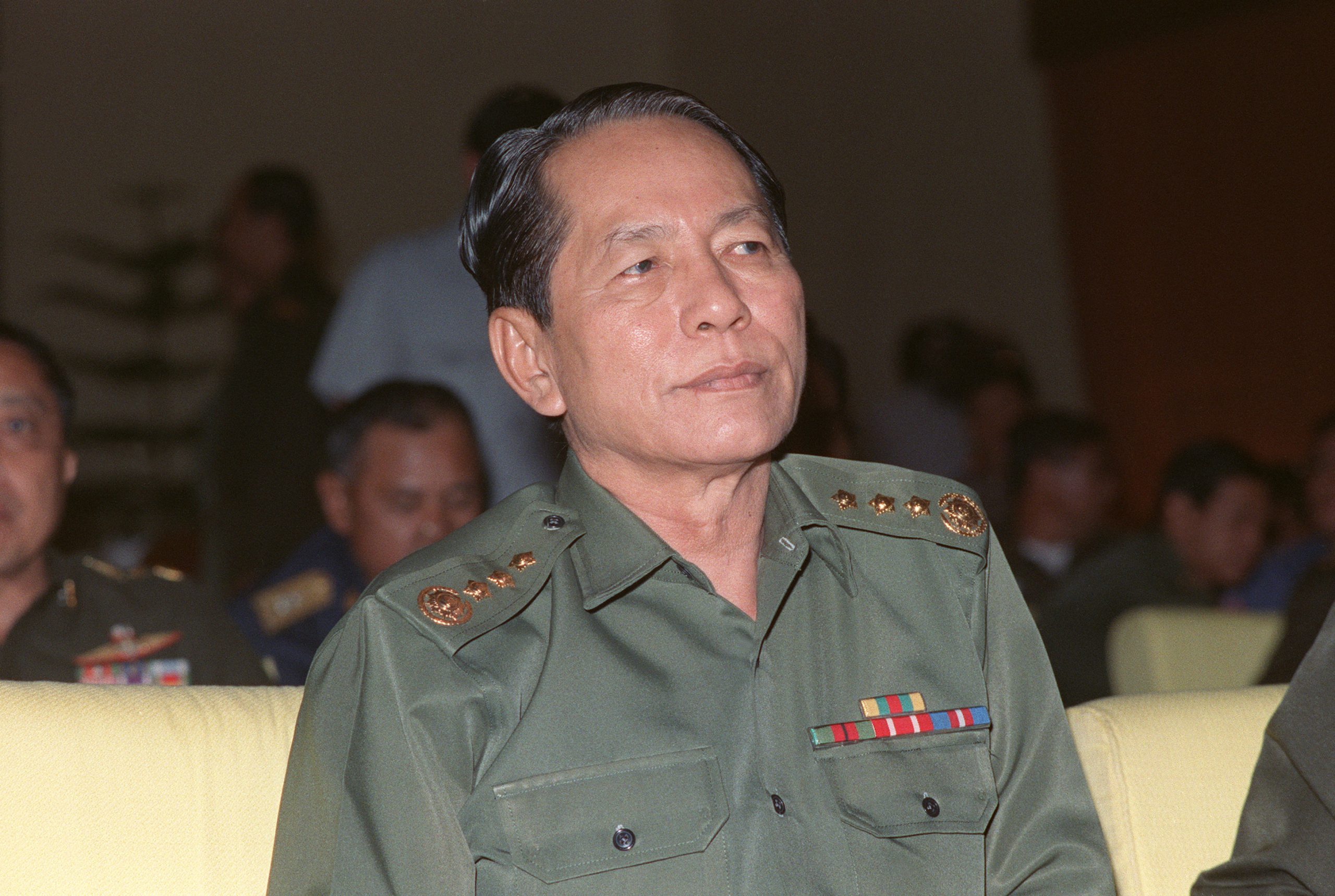
Meanwhile, the first SLORC chairman, General Saw Maung, had resigned in April 1992 and been replaced by General Than Shwe. But that purge was not really political in nature. Saw Maung had become increasingly erratic, some would argue he had gone insane. His public speeches were incoherent and rambling, covering subjects such as dying tomorrow and sightings of Jesus in Tibet. He had also been seen at a military golf course in Yangon screaming “I am King Kyansittha!” in a reference to one of the rulers of the ancient Bagan empire whose name means “the remaining soldier” or “the one who was left behind.” Saw Maung died in oblivion and obscurity in July 1997.
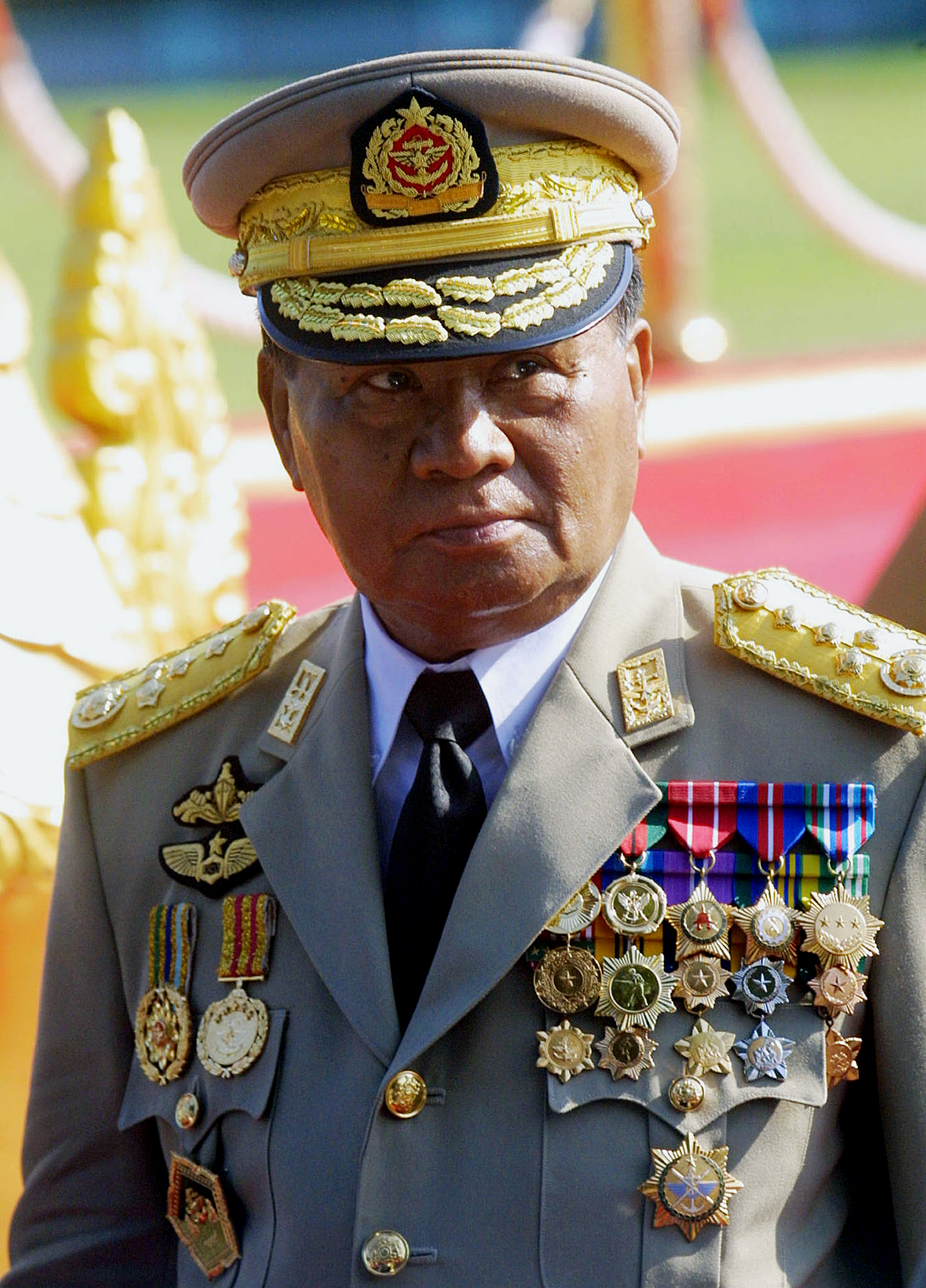
Having got rid of Saw Maung and Khin Nyunt, Than Shwe was far more successful in building up a new military leadership. The old dictator, Ne Win, had died in 2002, mourned by no one, not even the military officers whose godfather he once was. Seeking to avoid the fate of his predecessors Ne Win and Saw Maung, Than Shwe decided to appoint not one, but three successors: his prime minister, Thein Sein, would become president after a sham election that was planned for November 2010, and another general, Shwe Mann, would head the military’s own political party, the Union Solidarity and Development Party (USDP), which was formed 12 years after the 1988 uprising and the subsequent collapse of the BSPP. A weak and less-than-competent general, Min Aung Hlaing, was designated to take over as head of the military. But the plan failed when Shwe Mann went his own way and began to reach out to the NLD and its de facto leader, Daw Aung San Suu Kyi. He was removed as head of the USDP in August 2015 and, in April 2016, was sacked from the party along with 17 senior party members. Thein Sein, for his part, after becoming president in 2011 took a number of initiatives that led to a more open society, but he never became as popular as the military top brass had expected. He and the USDP lost the 2015 and 2020 elections to the NLD in landslides that the military failed to predict. In 2016, a new government took over most duties—except the crucial ministries of Defense, Home Affairs and Border Affairs, which remained in the sole hands of the military. And so did the military itself, an autonomous entity beyond any kind of parliamentary control or even oversight.
The NLD’s second successive election victory in November 2020 led to the February 2021 coup and, once again, the military misjudged the situation. A new, politically active and aware civil society had emerged during the 2011-2021 period of relative openness. People had also had enough of direct or indirect military rule, which had been the case from the 1962 coup to the 2015 election, and hence the NLD’s massive electoral victories. Daw Aung San Suu Kyi had refrained from challenging the military’s political and economic power during her first term from 2016 to 2021, but the NLD’s overwhelming election win in November 2020 gave her a strong mandate to push for real democratic change. That could, in turn, have led to the generals’ risking retribution for the many crimes they committed during their decades in power. All army officers know where the skeletons of past atrocities are buried, both in the frontier areas and also in the urban centers, home to an emerging and growing middle class. Min Aung Hlaing is widely loathed across the population for his ruthless post-coup clampdown and killings, and he and his ilk know all too well that they either maintain power at any price or land in prison—or worse. As the saying goes, if they don’t hang together they fear they will hang separately. It is a combination of those fears and deeply entrenched economic interests that hold the military so tightly together and not, as some Western analysts have suggested, some underlying sense of patriotism or because officers have been hardened through battles in the field. And that also explains why, so far, no cracks have emerged within the military despite the violent, irrational and seemingly self-defeating orders being handed down by officers and carried out by seemingly unswervingly obedient foot soldiers.
At the same time, despite the similarities, what we are seeing today is not a repeat of 1962, 1976 or 1988. The military is suffering extraordinary losses on the battlefield, and soldiers are being killed not by some ethnic rebels but by their own Burmese countrymen. Their own relatives may also be part of the resistance, or have taken part in the Civil Disobedience Movement immediately after the coup. Will they remain forever loyal? And for how much longer will the cronies, on whose support the military depends, be willing to prop up a regime that is ruining their businesses? The exact amount of money leaving the country is not known, but is believed to be massive, and that kind of capital flight is not what the business community wants. Before the coup, Myanmar’s economic potential was substantial and there were hopes of serious economic development. Foreign companies were investing in Myanmar; now many of them are gone and there are no new investors. Min Aung Hlaing and his family may be doing just fine and even be willing to associate themselves with criminals in order to preserve their lavish lifestyles. It is now widely known that they have ties to Tun Min Latt, a drug trafficker who was arrested in Thailand in September last year. On the other hand, there are many others, even within the officer corps, who are not benefiting from the post-coup order and may, in exchange for promises of amnesty, be willing to assume the roles of Ohn Kyaw Myint and his comrades. But such a development also depends on the policies and actions of the anti-junta resistance, which is unlikely to become strong enough to defeat the military on the battlefield. Without a credible amnesty policy, few if any officers would be willing to turn against Min Aung Hlaing and his cohorts. The alternative, sadly, is that Myanmar will descend further into an economic, social and political abyss from which there is no way out.

















